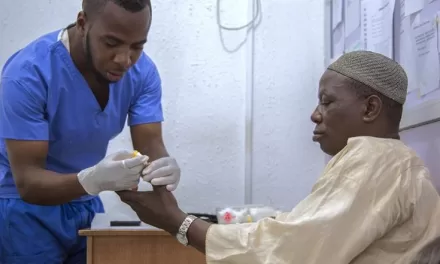In a groundbreaking study published in Microbiology Spectrum, researchers have identified the nasal microbiota as a potential diagnostic biomarker for sepsis, surpassing traditional analyses of gut microbiota in accuracy. Conducted at Zhujiang Hospital, Southern Medical University, Guangzhou, China, the study underscores a pivotal shift in critical care diagnostics.
Led by Dr. Xiaolong He and his team at the Microbiome Medicine Center, the study involved 157 ICU patients, including 89 diagnosed with sepsis. Nasal swabs and fecal samples were collected and subjected to DNA sequencing using Illumina technology. The data underwent rigorous bioinformatics analysis and machine learning techniques to distinguish septic from non-septic patients.
The findings revealed distinctive differences in the nasal microbiota between the two groups. Sepsis patients exhibited significantly lower community richness and distinct microbial compositions compared to non-septic individuals. Key genera such as Corynebacterium, Staphylococcus, Acinetobacter, and Pseudomonas were identified as enriched in the nasal microbiota of septic patients.
“These findings have significant implications for the field of critical care medicine,” emphasized Dr. He. “While previous research has primarily focused on the gut microbiota in sepsis, our study highlights the overlooked potential of nasal microbiota as a diagnostic marker.”
Sepsis, a life-threatening condition with mortality rates ranging from 29.9% to 57.5%, remains a clinical challenge despite advances in diagnostic criteria. The study’s innovative approach not only enhances diagnostic precision but also opens new avenues for therapeutic strategies targeting microbiota dysbiosis.
Moving forward, Dr. He proposes further investigation using animal models or larger patient cohorts to deepen understanding beyond the antibiotic effects of microbiota in sepsis management.
The study’s implications are poised to reshape diagnostic paradigms in critical care, offering hope for improved outcomes and enhanced patient care in sepsis treatment. As research progresses, the integration of nasal microbiota analysis may pave the way for personalized medicine approaches in intensive care settings.












